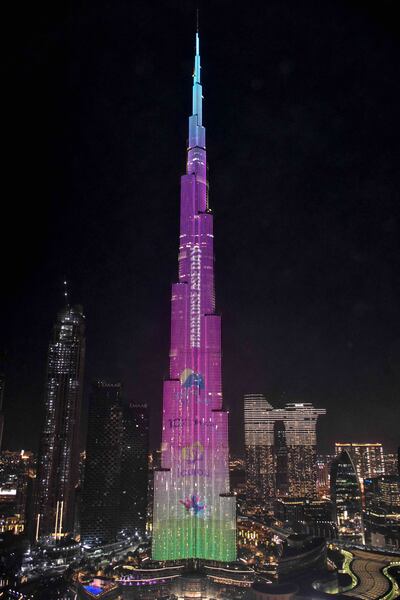Related: Rare Disease Day: Family tell of vital support for rare genetic condition
A UN resolution on rare diseases that was adopted in December could help create opportunities for people living with uncommon medical conditions.
Government officials and non-profit organisations celebrated the resolution on Rare Disease Day — February 28 — during an event at Expo 2020 Dubai.
More than 7,000 rare diseases that have been identified so far and these affect about 400 million people globally. Seventy-two per cent of these illnesses are genetic and an estimated 7.8 million people in the Middle East live with a rare disease today — three quarters of them are children.
However, there had been little visibility for people with rare diseases, including a lack of public awareness that resulted in greater risk of social exclusion and many forms of discrimination.
executive director, Rare Diseases International
It is hoped that the resolution, that passed with support from all 193 members of the UN General Assembly, will help create global and national-level policies to help people suffering from rare illnesses such as muscular dystrophies or Huntington’s disease.
“Getting the UN resolution really gave an impetus and gave a lot of energy to national patient groups to go to their own policymakers and put rare diseases on the table,” said Flaminia Macchia, executive director of Rare Diseases International.
“It also further connected the international movement to work together towards a major common goal and we do feel that we feel closer.
“It gives immediate global visibility to an invisible population. It also means that the challenges of this population are now also visible and recognised."

Ms Macchia said the next steps involve moving towards social justice and equity, including access to education, and finding and maintaining work.
She said women with rare diseases are especially discriminated against, and that there needs to be gender equality.
“Women are disproportionately discriminated against and stigmatised,” she said.
The resolution also addresses solutions such as strengthening healthcare systems, international networks and collaboration.
Ms Macchia said that the UN resolution would help drive global and local change in healthcare systems.
“Stronger healthcare systems will better support universal health coverage for rare diseases. For this very specific health-related aspect, we will work closely with the World Health Organisation," she said.
“The resolution empowers us as a community and opens the door towards other UN bodies, agencies and programmes in order to truly address rare diseases holistically.”
Dr Maryam Matar, founder and chairwoman of the UAE Genetic Diseases Association, said that until the group was formed in 2004, there were no organisations in the Emirates to help people with rare diseases.
Since then, the UAE has made many strides in helping people of determination, especially those with rare diseases, including legislation that makes it illegal to discriminate against patients.
“At that time, there was not a single organisation where the patient and their family could come forward and talk about it,” she said.
“So, we started with some common genetic diseases like hemoglobinopathies, and specifically glucose-6-phosphate dehydrogenase, thalassaemia and sickle-cell anaemia.”
She said they carried out public awareness campaigns about availability, accessibility and affordable diagnoses, management and treatment.
The event at Expo 2020 Dubai involved a parade, musical performances and a speech — all aimed at boosting awareness about rare diseases.
Al Wasl Dome was also lit up with blue, green, pink, and purple lights, the official colours of Rare Disease Day.

















